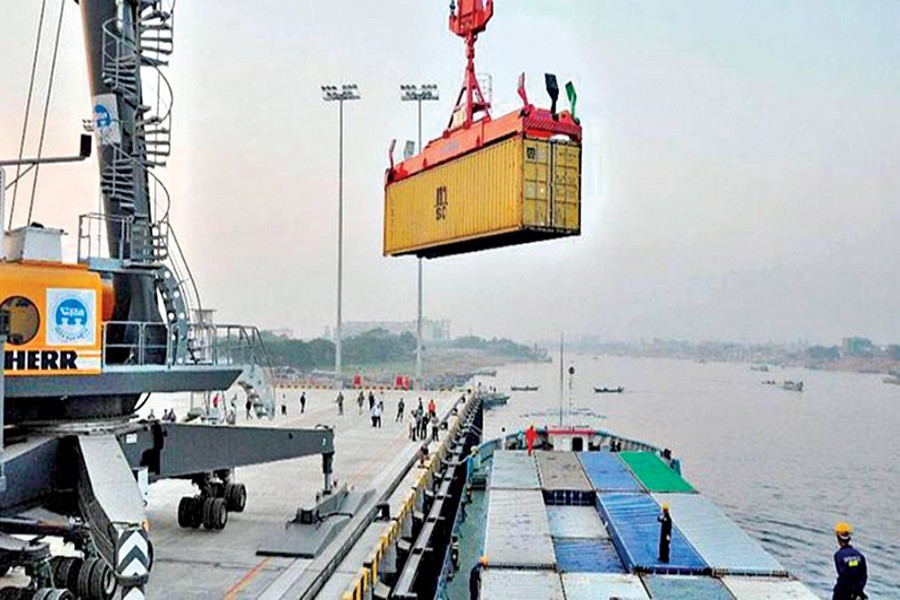Bangladesh is likely to give its consent to India's proposal to take Pangaon terminal near Dhaka in the bilateral Inland Water Transit and Trade Protocol.
The issue may be finalised at the upcoming secretary-level talks to be held in Delhi next month, shipping ministry officials said.
Located 20 kms off Dhaka metropolitan area in Keraniganj Upazila in Dhaka district, the Pangaon terminal is an inland port and container terminal on the Buriganga river.
It was opened in 2013, with the prime objective of country's trade shipment through the alternative route to leapfrog Dhaka-Chittagong highway congestion.
"We have received a proposal from India for inclusion of the Pangaon port in the inland water protocol recently. In principle we agree to this proposal, but the issue will be finalised in the upcoming secretary-level meet in Delhi to be held next month, " Md Abdus Samad, Secretary of the Ministry of Shipping, told the FE on Sunday.
The meeting will also discuss Standard Operating Procedures (SoP) of the inland water protocol.
The two countries had agreed on the extension of Protocol on Inland Water Transit and Trade (PIWTT), which was signed in 1972. It was initially renewable every two years. However, since October 2001, the renewal has been done in a haphazard manner. In June 2015, during Indian Prime Minister Narendra Modi's visit to Bangladesh, the two governments renewed the protocol on June 6, 2015.
Later, the India-Bangladesh waterway transit was inaugurated on June 18, 2016 when an Indian vessel carrying goods for Tripura landed at Ashuganj port from Kolkata.
India plans to connect its National Waterway one (NW -1) with its north-eastern states through Indo-Bangla protocol route. It will reduce the distance from about 1,700 kms via Siliguri in North Bengal to about 500 kms via Bangladesh, Indian officials said.
At present Mongla, Narayanganj and Ashugunj ports in Bangladesh and Kolkata in West Bengal and Karimgunj in Assam are under the inland water protocol.
India has proposed the inclusion of this port to reduce the transport cost of goods between Kolkata and Dhaka.
Bilateral trade between the two countries, which registered a growth of 11 per cent to reach $7.5 billion dollars in the last fiscal, is largely dependent on road transport.
The Pangaon port has a storage capacity of 3,500 TEUs in its 55,000-square-meter container yard, and handles 116,000 TEUs annually. The port has a 180-meter-long and 26-meter-wide jetty which can handle two ships of 70 to 75 meters at berth simultaneously.


